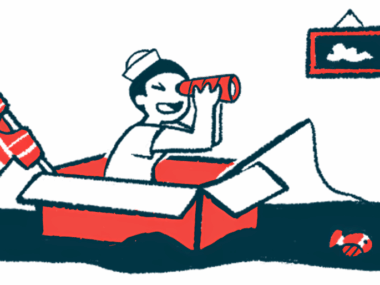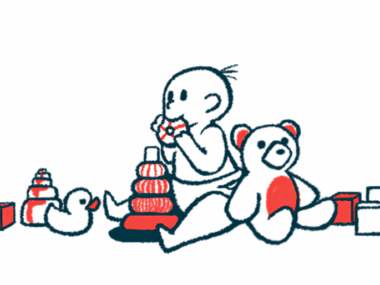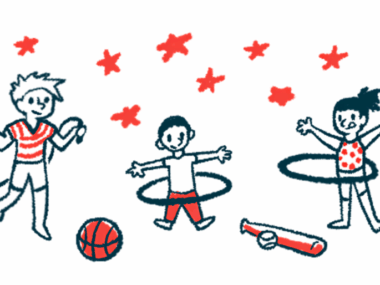The emotional toll of caring for a child with hemophilia
Caregiver burnout is common among rare disease parents
Written by |

Recently, I attended the Florida Bleeding Disorders Association’s Women’s Educational Retreat in Hollywood, Florida. I came away with several important takeaways, but one presentation by Lucila Ramirez Donaldson of Genentech truly resonated: caregiver burnout.
Many of the women attending were mothers or partners of people living with hemophilia. I’ve always been in awe of these mothers. Imagine having to insert a needle into your squirming 2-year-old child’s vein. The emotional toll of that responsibility is staggering.
The speaker reminded us that most women are caregivers to someone. That hit home. Throughout my life, I’ve supported my mom, grandparents, and five nephews in various capacities. It made me reflect on how often caregivers don’t give themselves credit for the emotional weight they carry — especially when caregiving becomes part of who they are.
Caring under pressure
Caring for a child with hemophilia is more than just managing bleeds — it’s managing life under pressure. According to a 2020 report from AARP and the National Alliance for Caregiving, an estimated 53 million American adults are caregivers. More than half of those are women.
The financial burden of hemophilia is often immense. Half of all caregivers report financial strain, and one-third earn less than $50,000 per year. For parents of children with bleeding disorders, caregiving often means sacrificing income while learning to administer infusions, battling insurance denials, coordinating school accommodations, and managing the ever-present worry about what might happen next.
It’s a role filled with deep love — but also burnout, isolation, and sacrifice.
The emotional load
According to the Cleveland Clinic, caregiver burnout is a state of mental, emotional, and physical exhaustion. Symptoms include anxiety, hopelessness, apathy, appetite or weight changes, and social withdrawal. It affects more than 60% of caregivers.
Parents of children with hemophilia often live in a state of constant alertness. Every bump, bruise, or ache can trigger a wave of anxiety. The fear of missing a bleed — or of being dismissed by a provider unfamiliar with bleeding disorders — can be overwhelming.
Many parents also wrestle with guilt. My parents wondered if my bleeding disorders were their fault. Some ask themselves: Did I catch it early enough? Should I have kept my child at home? These questions echo, even when a parent is doing everything right.
There’s also the emotional balancing act: advocating fiercely while trying not to appear “difficult” to medical teams or schools. It’s exhausting, but the stakes feel too high to step back.
Many caregivers don’t ask for help. Some feel no one else could possibly understand the complexity of hemophilia care. Others have asked in the past and been met with judgment, dismissal, or inadequate support.
There’s also a cultural narrative that says caregivers should be selfless, tireless, endlessly strong. But the truth is: Caregivers are human. And they deserve care, too.
Caregivers need:
- Validation: Simply hearing “You’re doing an amazing job” can be a lifeline.
- Support: Whether it’s respite care, therapy, financial assistance, or practical help like meals and errands, caregivers need systems that support them, not just the patient.
- Community: Finding others who understand the hemophilia journey makes an enormous difference. Peer support groups, online communities, and local chapters can offer relief in the form of solidarity.
To the caregivers
If you’re caring for a child (or an adult) with hemophilia, please know this: You are not invisible. Your sacrifices matter. Your strength is real, even when you don’t feel strong. You are not alone.
Several national organizations, including the Coalition for Hemophilia B, offer parenting support groups where caregivers can connect, share experiences, and find a sense of community. These spaces remind us that we don’t have to carry the weight alone.
And if you know a caregiver, reach out. Listen. Offer help without being asked. Because behind every child living well with a chronic condition is a caregiver who could use some care, too.
Note: Hemophilia News Today is strictly a news and information website about the disease. It does not provide medical advice, diagnosis, or treatment. This content is not intended to be a substitute for professional medical advice, diagnosis, or treatment. Always seek the advice of your physician or another qualified health provider with any questions you may have regarding a medical condition. Never disregard professional medical advice or delay in seeking it because of something you have read on this website. The opinions expressed in this column are not those of Hemophilia News Today or its parent company, Bionews, and are intended to spark discussion about issues pertaining to hemophilia.




Janet H Brewer
Great article! Thank you Jen for shining a light on the amazing caregivers in our community! Another thing to consider for our caregivers is that at least half of them are managing their own bleeding symptoms. All the while being told their symptoms aren't real. One of my questions has always been, if female/mothers/caregivers are trusted to recognize a bleed for their male children, why are we not trusted to recognize a bleed in our own bodies?
Jennifer Lynne
Thank you, Janet! That is a great question! So many women put the needs of their children before themselves. ❤️
Pratap Nagur
Helpfull
Jennifer Lynne
Thank you!